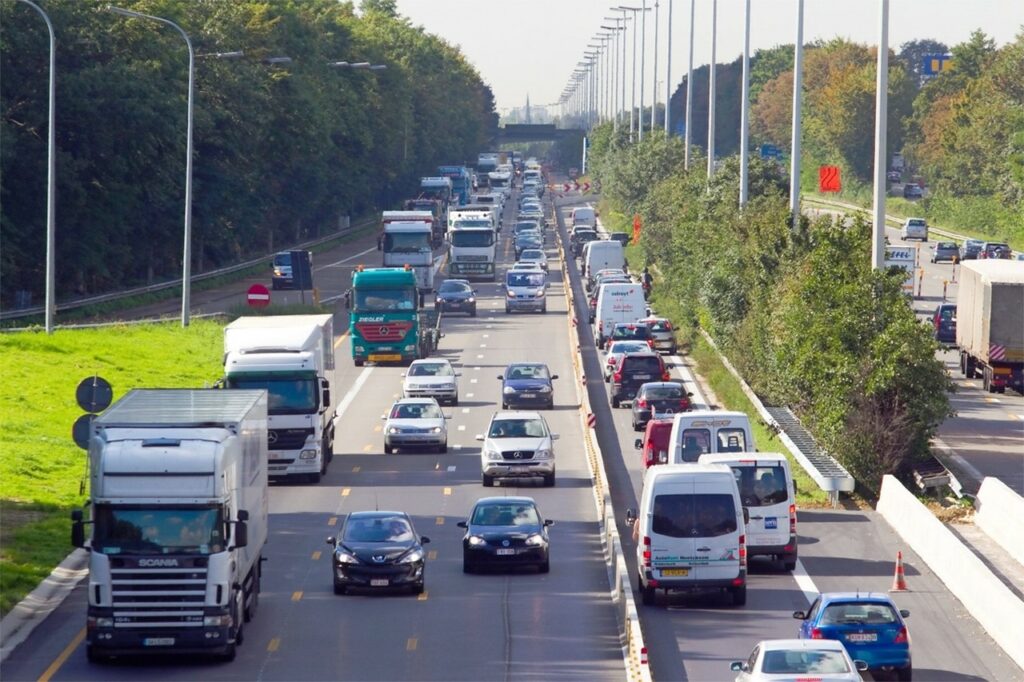In most cases, anyone living in Belgium is prohibited from driving a foreign-registered vehicle, but there are some exceptions. Find out what these are, or how to register a vehicle if this is necessary.
Any person residing in Belgium is not entitled to drive a vehicle with a foreign number plate on the country's territory. The Belgian law clearly states that a Belgian resident can only drive a vehicle registered in Belgium. This is to avoid people using a foreign number plate to pay lower taxes, for example.
"The importance is mainly that you pay tax in the country where the vehicle is used the most, which is why it is compulsory to register your vehicle in Belgium," Stef Willems from Vias Traffic Institute told The Brussels Times. In Belgium, people who own a car have to pay road tax every year, which isn't the case in all countries.
Who does the law apply to?
This law applies to any person who is registered with a Belgian municipality. Those with a second or holiday home in Belgium do not need to register their car here.
People who meet these criteria have to register the vehicles they use in Belgium in the Vehicle Registration Directorate (DIV) of the Federal Ministry Mobility and Transport, even if they are already registered abroad.
The car must be registered in Belgium within 30 days of the owner registering themselves with the commune. If this is not done on time, drivers risk still having to pay the registration tax and the annual road tax, as well as a fine of at least €50.

Credit: Belga / Benoit Doppagne
Not only do cars and other vehicles have to be registered, but the law also applies to vessels and aircraft for passenger or goods transport, as well as mopeds, trikes, trailers and trailers. Bicycles and electric bicycles do not need to be registered.
Process of registering vehicle
The first step when registering a vehicle with a foreign number plate is visiting a customs office authorised to prepare an E705 vignette, an electronic signal enabling the DIV to check that the vehicle is on Belgian territory on a regular basis when applying for a registration plate.
The vehicle registration number, registration certificate of the vehicle and a Belgian residence permit or proof of registration in a municipality are needed for this process. Once the VAT for the car is paid, customs will draw up an E705, making the vehicle fiscally compliant.
Drivers without an inspection certificate from another EU member state that is recognised in Belgium, or those with a car that isn't registered in their name, need to take the vehicle for an inspection to make sure there are no defects. This has to be done within 30 days after it has been registered.

King Philippe's Belgian number plate. Credit: Belga / Benoit Doppagne
Finally, insurance has to be taken out for the car in Belgium and it can then be officially registered with the DIV. In some cases, Belgian insurance brokers can arrange an online registration with the DIV.
If this is not possible, or the person prefers to arrange registration themselves, they can make an appointment with the DIV counter. Drivers must bring a copy of the purchase invoice, the original registration certificate, the pink registration form, proof of insurance and the Belgian inspection certificate (if needed). The complete file can also be submitted to the DIV by post.
Within 24 hours of registration, the certificate and number plate will be delivered by post, costing €30, which can be paid in cash upon delivery. The official number plate should then be attached to the vehicle.
Exceptions to the rule?
There are, however, a few exceptions. For example, people who are registered in Belgium but work for a company abroad can have a company car registered in another country. International students who are domiciled abroad can drive their car in Belgium without registering it for the duration of their studies.
Related News
- From contracts to termination: What are your rights as a renter in Brussels?
- How to exchange a foreign driver's licence for a Belgian one
It is also possible to borrow a vehicle that is registered abroad for a maximum period of one month if the foreign owner of the vehicle has given written permission for this. The owner must declare in this document that he is providing the vehicle free of charge, for a set period, with an end date.
If the vehicle is being rented from a foreign rental company for a maximum of six months, it also doesn't have to be registered, but the signed and dated rental contract must be kept in the vehicle at all times.
Finally, there are exceptions for civil servants working in international institutions, military personnel and diplomatic representatives, but again, the driver should always be able to provide the necessary proof of these exemptions.
In all the above cases, if the driver is unable to produce the document during a check, they must send it to the authorities within 10 working days of the check. If this is done, a flat-rate road tax of €100 will be charged.

